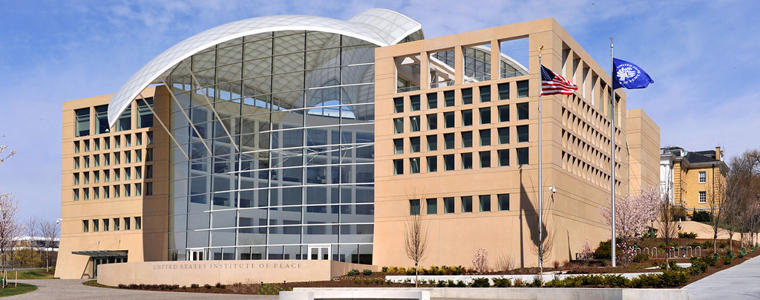Innovation in Peacebuilding: Breaking Down Silos and Engaging Civil Society
The U.S. Institute of Peace in partnership with the Alliance for Peacebuilding is pleased to co-sponsor an afternoon of events that will explore innovation in peacebuilding, and provide examples of working across silos to achieve more stable and durable peace.
Read the event coverage, U.N. Deputy Secretary-General Eliasson Calls for More Players, New Solutions for Peace

Jan Eliasson, deputy secretary-general of the United Nations, will open the afternoon with a discussion on the challenges facing the United Nations in Conflict Resolution and Peacebuilding. During his career as one of the world’s top diplomats, Ambassador Eliasson also served as the special envoy of the U.N. Secretary-General for Darfur from 2007-2008. Preceding his work in Darfur, he was foreign minister of Sweden, after serving as Sweden’s ambassador to the U.S. from 2000-2005. His work has focused on mediation missions in the Middle East and Europe, as well as on broader topics such as landmines, humanitarian action, and conflict prevention. Ambassador Eliasson was appointed as the first U.N. undersecretary-general for humanitarian affairs in 1992. He was also a senior visiting scholar at USIP in 2009.
Following the conversation with Ambassador Eliasson and to launch the Alliance for Peacebuilding’s new semi-annual, online publication, Building Peace: A Forum for Peace and Security in the 21st Century, a select group of Building Peace authors will frame a discussion on peacebuilding approaches to the complex conflict in Mali. Drawing on the perspectives shared in their Building Peace articles, these authors will lead a discussion about how peacebuilders can work with local citizens and international actors to address root causes of conflict, and bring security to war-torn societies.
1:15pm Challenges for the United Nations in Conflict Resolution and Peacebuilding
- Jan Eliasson, Deputy Secretary-General of the United Nations, Keynote Address
- Pamela Aall, Provost of the Academy for International Conflict Management and Peacebuilding, Welcome
- Melanie Greenberg, President and CEO, Alliance for Peacebuilding, Moderator
2:45pm Peacebuilding Perspectives on Mali: A Conversation with Building Peace Authors
- Ambassador Al Maamoun Baba Lamine Keita, Ambassador of Mali to the U.S., The Embassy of Mali, Panelist
- John Agoglia, Vice President, IDS International, Panelist
- Paula Gaviria Betancur, Special Administrative Unit for Reparations and Comprehensive Attention to Victims, Colombian Government, Panelist
- Rafif Jouejati, Spokesperson, Local Coordination Committees in Syria and Director, FREE-Syria, Panelist
- Chance Briggs, National Director for Mali, World Vision International, Discussant
- Melanie Kawano-Chiu, Program Director, Alliance for Peacebuilding, Moderator



